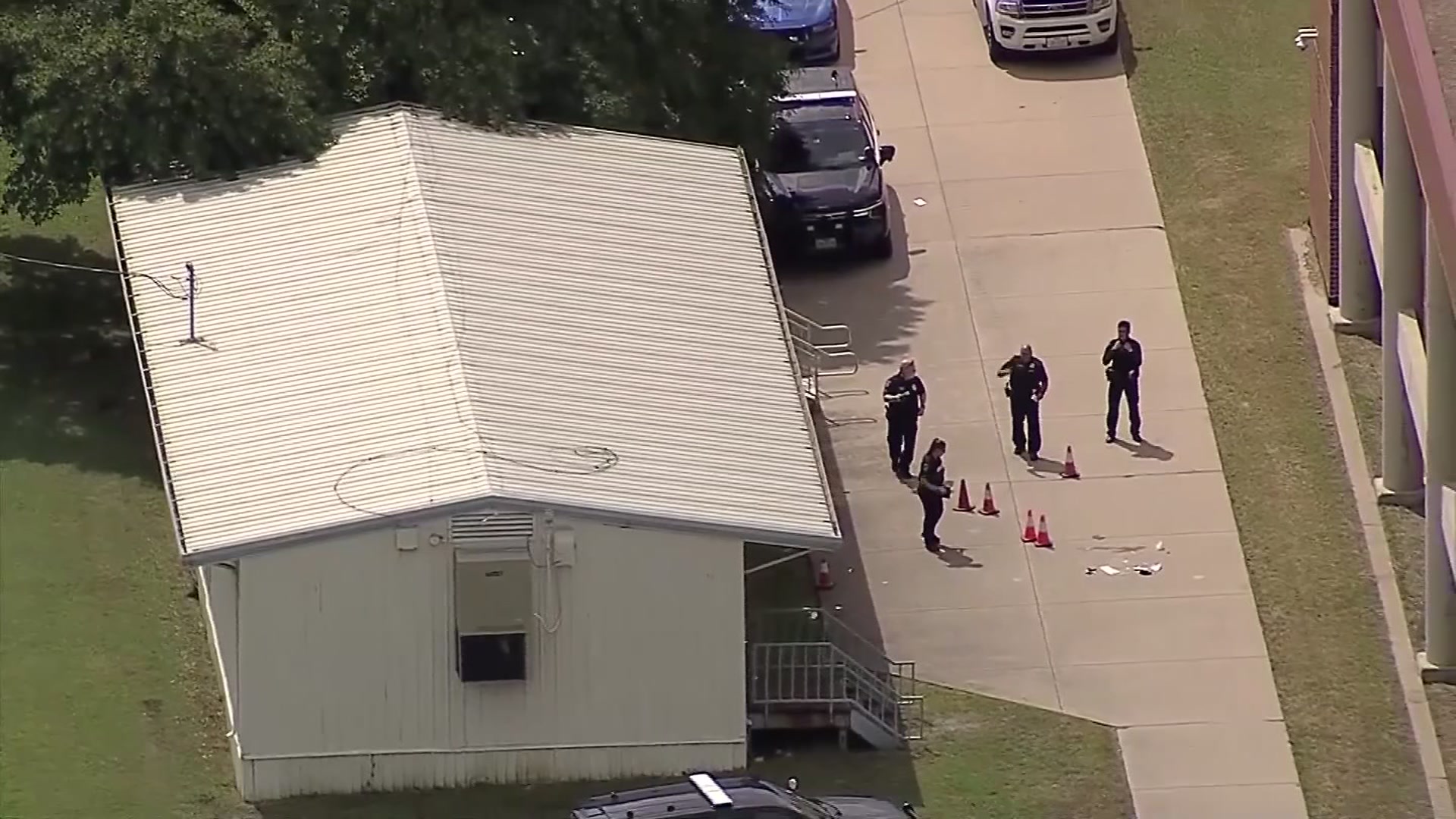
A federal judge halted the scheduled execution Thursday of a man convicted of kidnapping and raping a 16-year-old Texas girl, bludgeoning her with a shovel and burying her alive.
The ruling was handed down just hours before Orlando Hall was scheduled to die by lethal injection at the federal prison in Terre Haute, Indiana. He would be the eighth federal inmate put to death since the Trump administration resumed federal executions this year after a pause of nearly two decades without one.
U.S. District Judge Tanya Chutkan said the execution must be put on hold as the court weights constitutional questions raised by Hall's attorneys, including concerns over the federal Bureau of Prisons' protocols for executions.
"The court is deeply concerned that the government intends to proceed with a method of execution that this court and the Court of Appeals have found violates federal law," Chutkan wrote in the decision.
It wasn't immediately clear whether the Justice Department would immediately appeal the ruling, though the agency had done so after similar orders were issued before other executions earlier this year. Separately, another appeal in Hall's case making its way through the Supreme Court.
Hall's lawyers have also argued that bias played a role in his death sentence; Hall is Black, and his sentence was recommended by an all-white jury. His lawyers also contend that restrictions and concerns related to the COVID-19 pandemic have limited their ability to help him.
The Congressional Black Caucus sent a letter Thursday to Attorney General William Barr, citing concerns about the virus in urging a stay of execution. The letter stated that the virus "will make any scheduled execution a tinderbox for further outbreaks and exacerbate concerns over the possibility of miscarriage of justice."
Local
The latest news from around North Texas.
A judge ruled Thursday that the U.S. government must delay until next year the first execution of a female federal inmate in almost six decades after her attorneys contracted the coronavirus visiting her in prison. Lisa Montgomery had been scheduled to be put to death on Dec. 8.
Hall, now 49, was among five men convicted in the abduction and death of Lisa Rene in 1994.
According to federal court documents, Hall was a marijuana trafficker in Pine Bluff, Arkansas, who would sometimes buy drugs in the Dallas area. On Sept. 24, 1994, he met two men at a Dallas-area car wash and gave them $4,700 with the expectation they would return later with the marijuana. The two men were Rene's brothers.
Instead, the men claimed their car and money were stolen. Hall and others figured they were lying and were able to track down the address of the brothers' apartment in Arlington.
When Hall and three other men arrived, the brothers weren't there. Lisa Rene was home, alone.
Court records offer a chilling account of the terror she faced.
"They're trying to break down my door! Hurry up!" she told a 911 dispatcher. A muffled scream is heard seconds later, with a man saying, "Who you on the phone with?" The line then goes dead.
The men drove to a motel in Pine Bluff. Rene was repeatedly sexually assaulted during the drive and at the motel over the next two days.
On Sept. 26, Hall and two other men drove Rene to Byrd Lake Natural Area in Pine Bluff, her eyes covered by a mask. They led her to a grave site they had dug a day earlier. Hall placed a sheet over Rene's head then hit her in the head with a shovel. When she ran another man and Hall took turns hitting her with the shovel before she was gagged and dragged into the grave, where she was doused in gasoline before dirt was shoveled over her.
A coroner determined that Rene was still alive when she was buried and died of asphyxiation in the grave, where she was found eight days later.
Crossing the Texas-Arkansas line made the case a federal crime. One of Hall's accomplices, Bruce Webster, also was sentenced to death, though a court last year vacated the sentence because Webster is intellectually disabled. Three other men, including Hall's brother, received lesser sentences in exchange for their cooperation at trial.
Hall's lawyers contend that jurors who recommended the death penalty weren't told of the severe trauma he faced as a child or that he once saved a 3-year-old nephew from drowning by leaping into a motel pool from a balcony.
Donna Keogh, 67, first met Hall 16 years ago when she and other volunteers from her Catholic church set up a program to provide Christmas presents for children of inmates at the federal prison. They have corresponded ever since.
Keogh said Hall has two sons, ages 28 and 27, and 13 grandchildren.
"That's one thing we talked about all the time was the grandbabies," said Keogh, who has seven.
Keogh said Hall is remorseful for his crimes and has turned his life around in prison, educating himself and becoming an avid reader. She can't understand why he has to die, but said his last emails indicated he was leaning on his Islam faith.
"He seemed to be in a peaceful place, that he's made his peace with God," Keogh said.
Five of the first six federal executions this year involved white men; the other was Navajo. Christopher Vialva, who was Black, was put to death Sept. 24.
Critics have argued that executing white inmates first was a political calculation in a nation embroiled in racial bias concerns involving the criminal justice system, especially in the aftermath of George Floyd's death in Minneapolis in May.
A recent report by the Washington, D.C.-based Death Penalty Information Center said Black people remain overrepresented on death rows, including federal death row. The organization's database shows that 25 of 55 federal death row inmates (46%) are Black, while Blacks make up only about 13% of the U.S. population.



